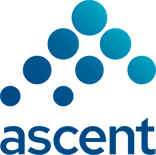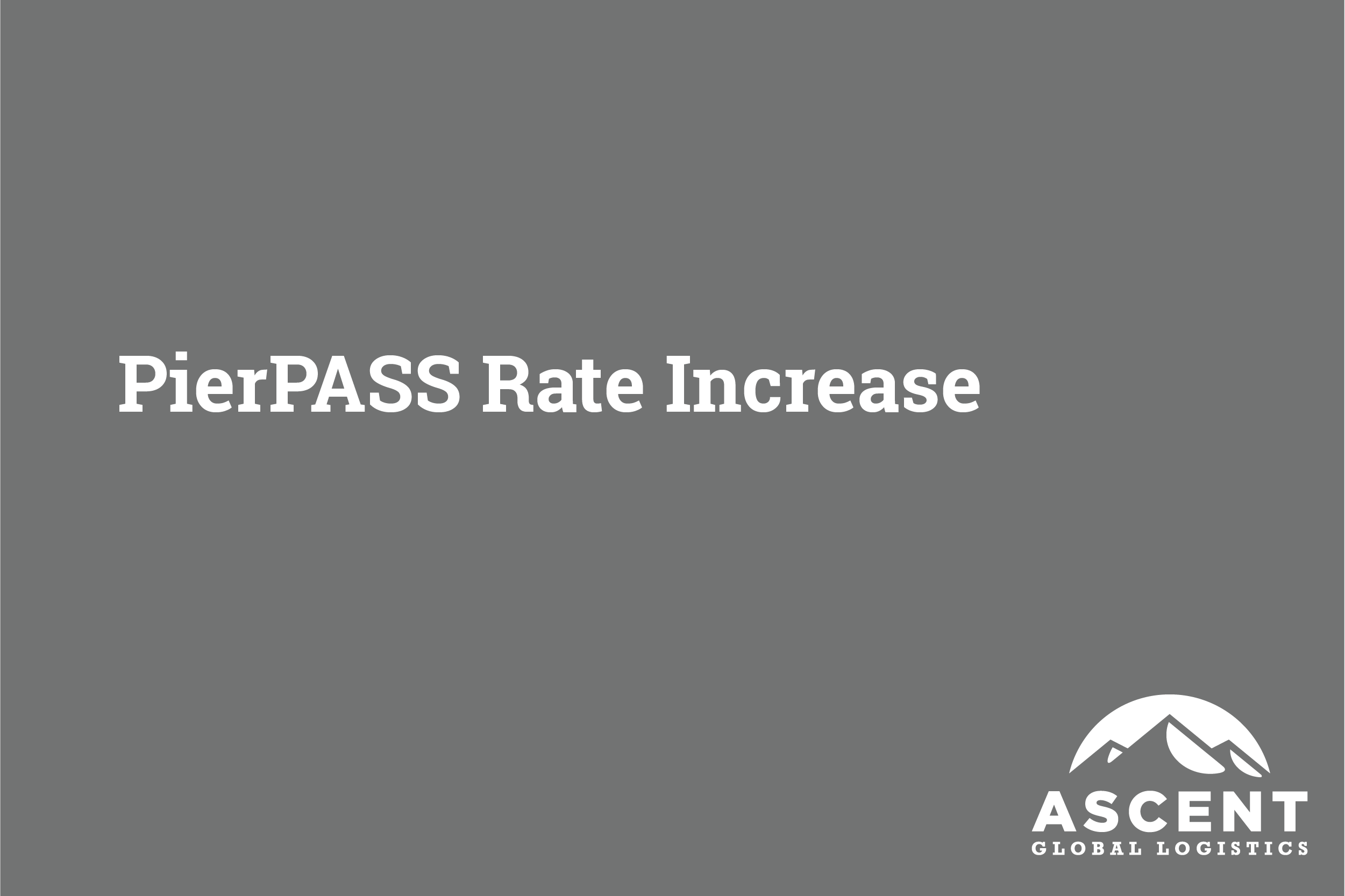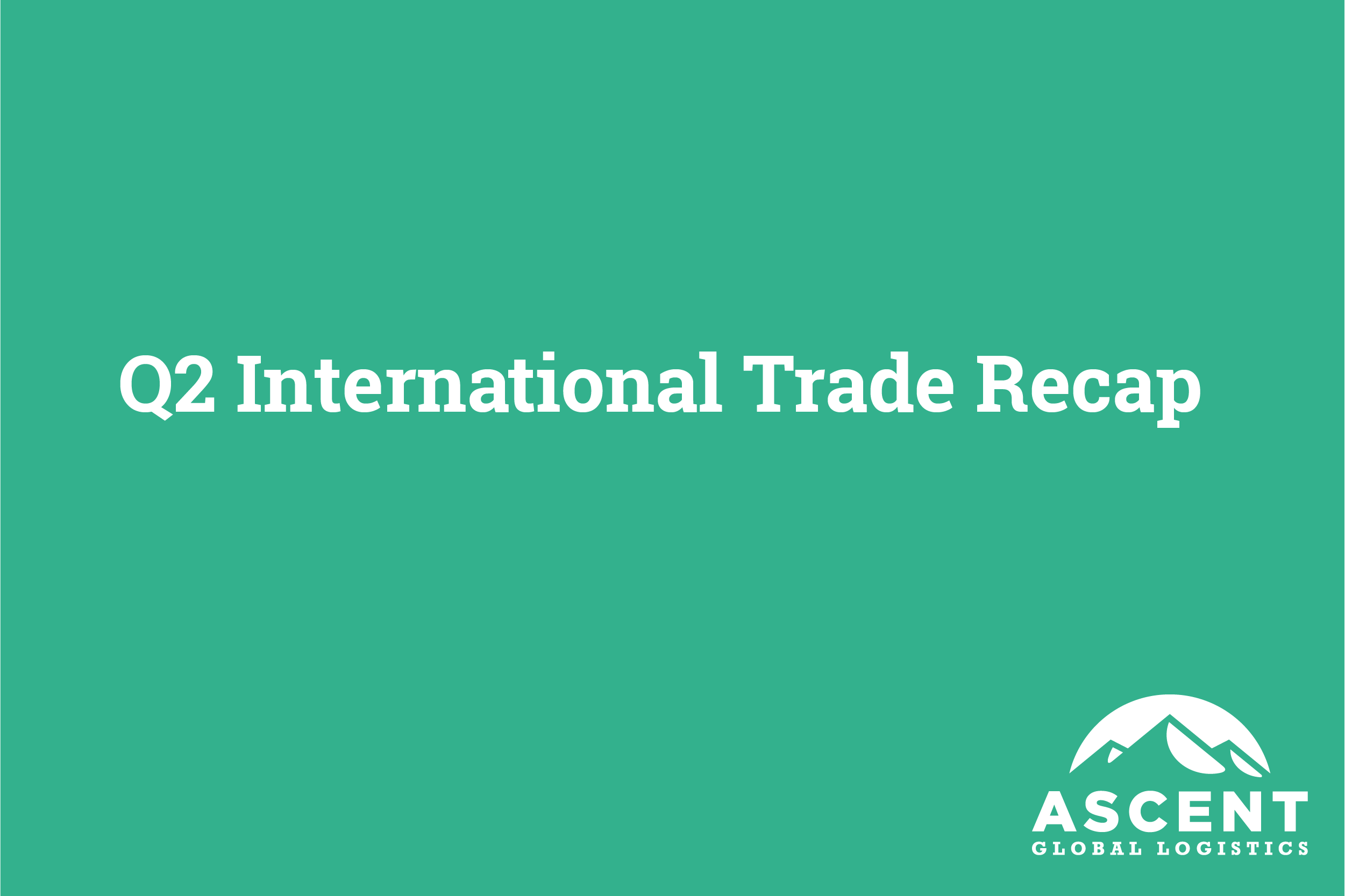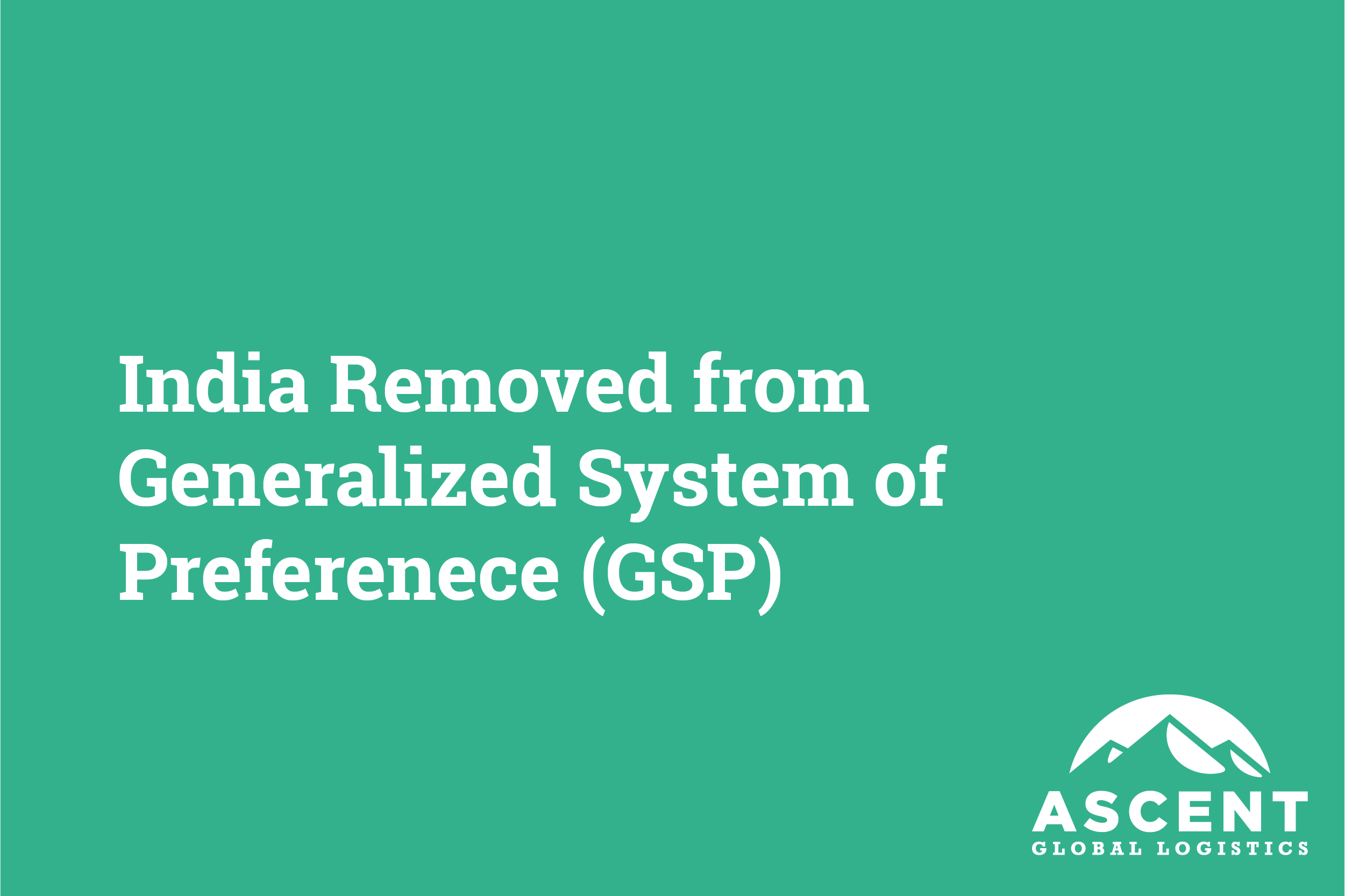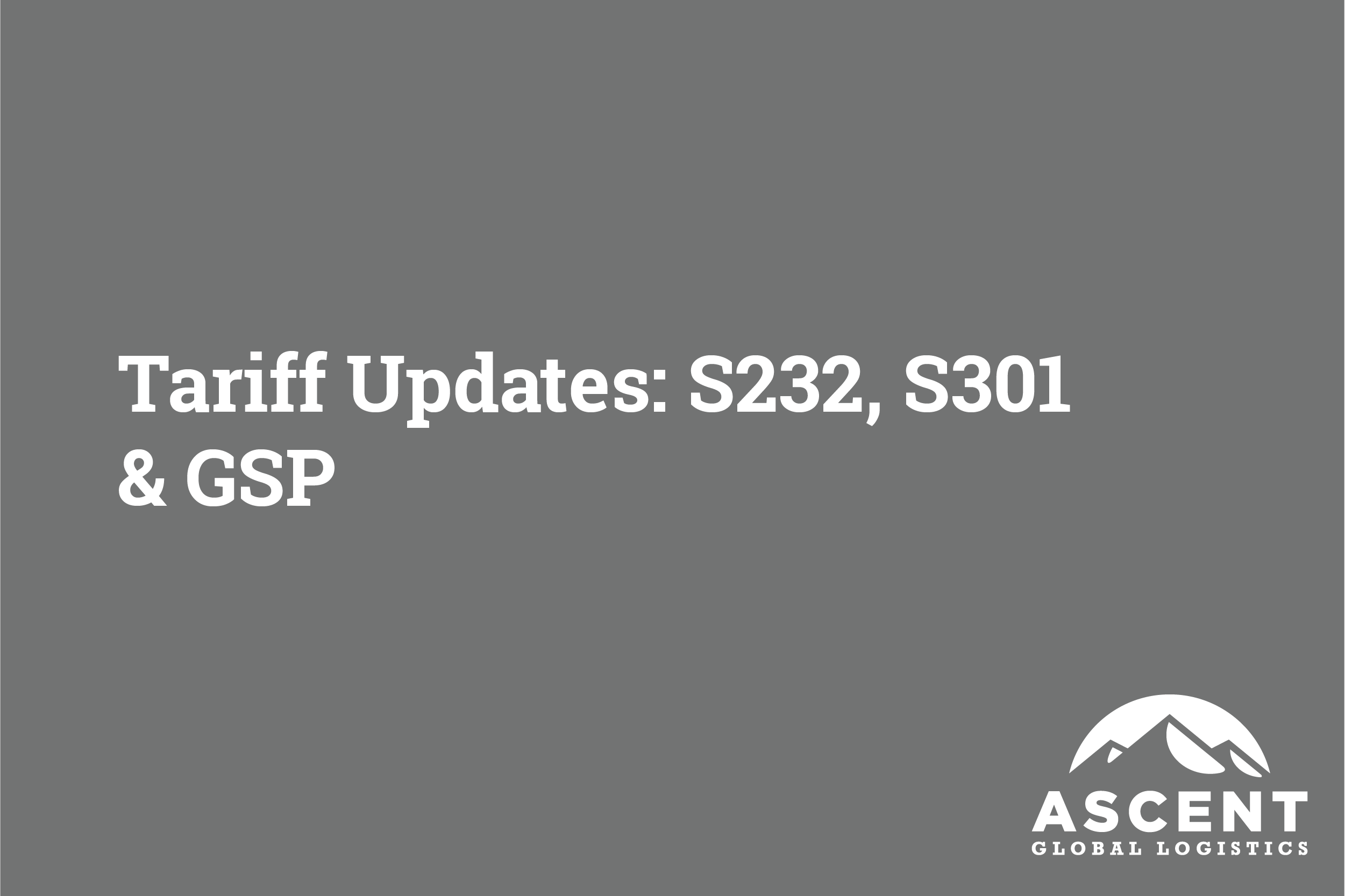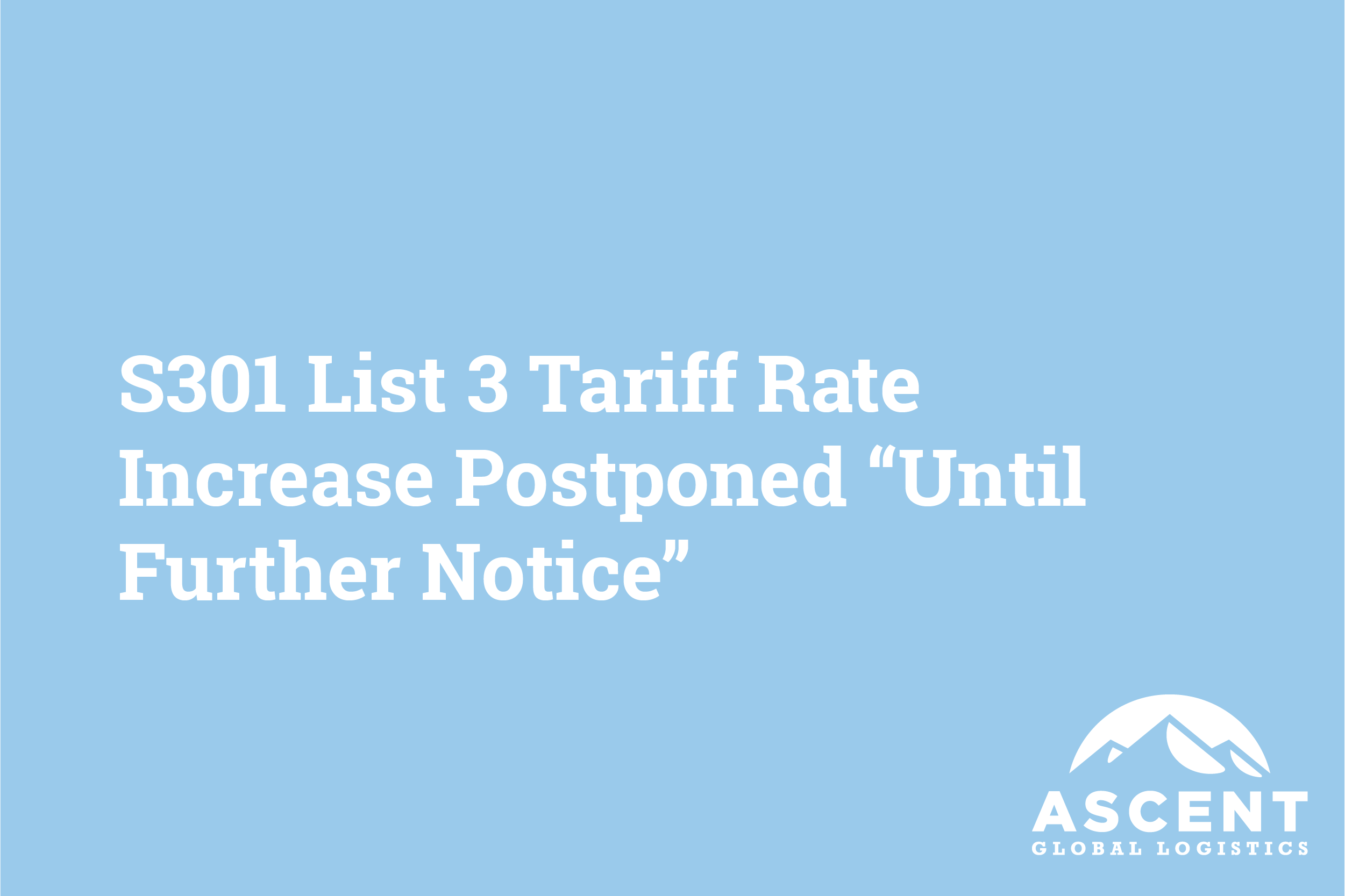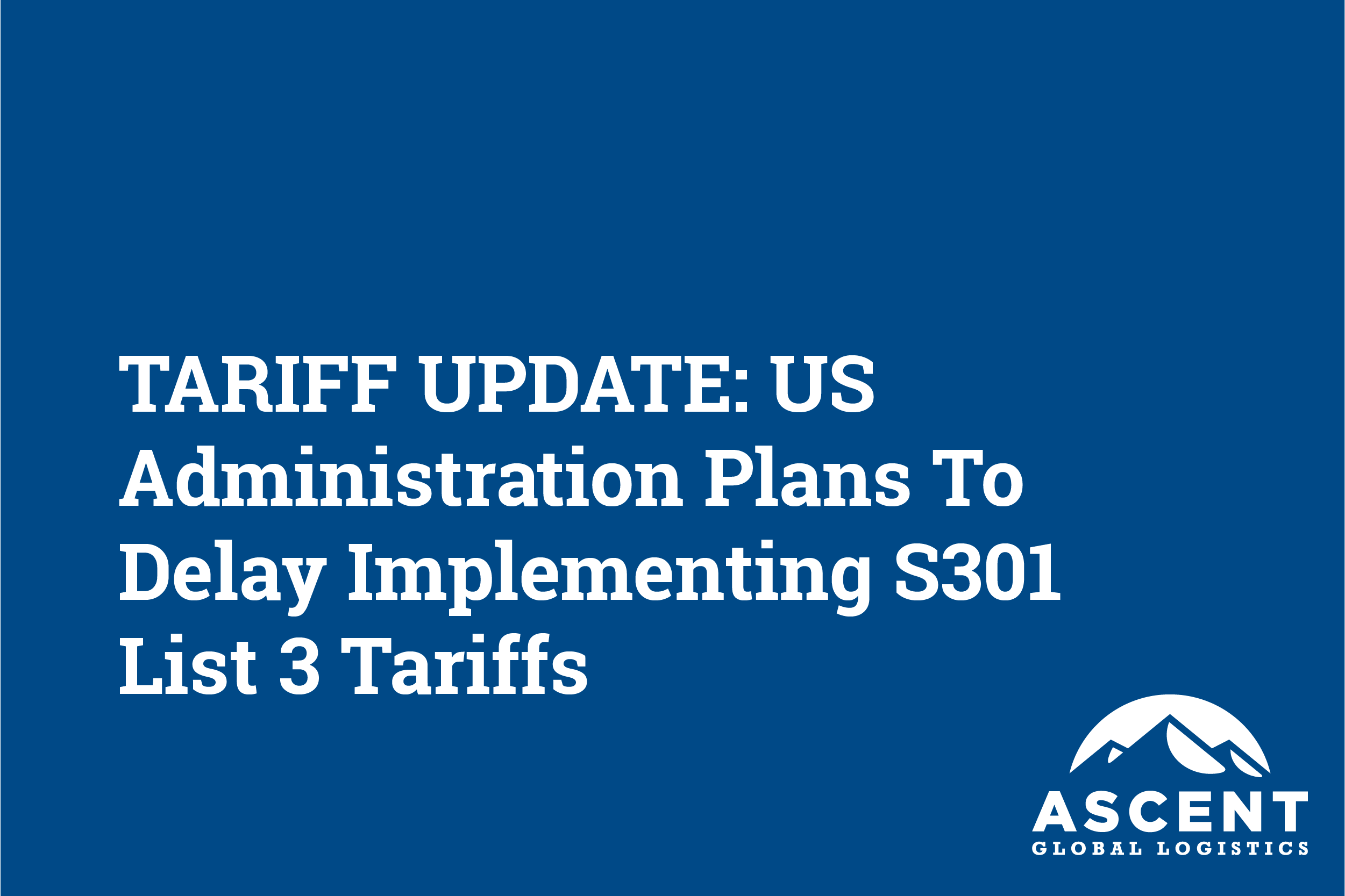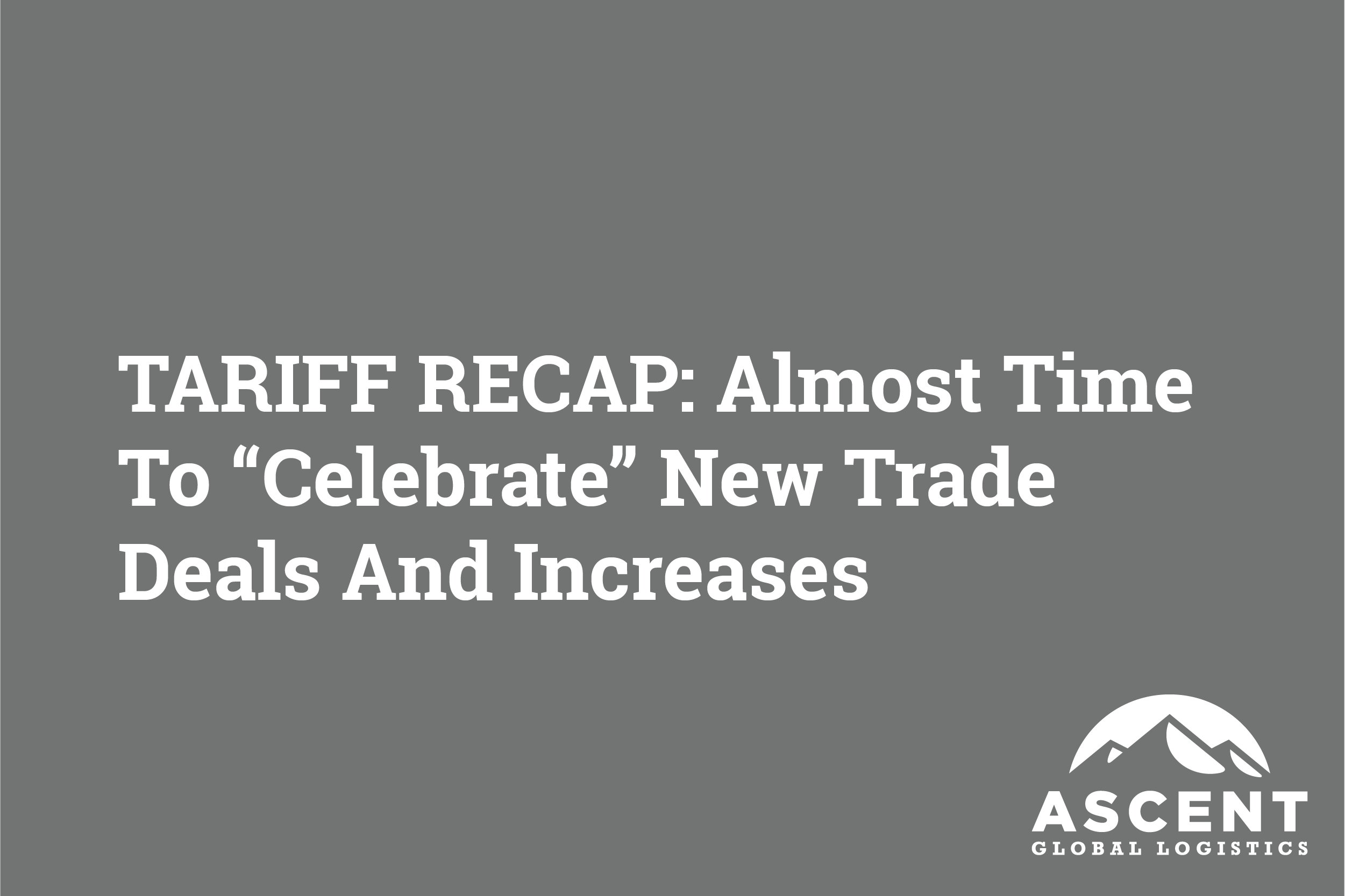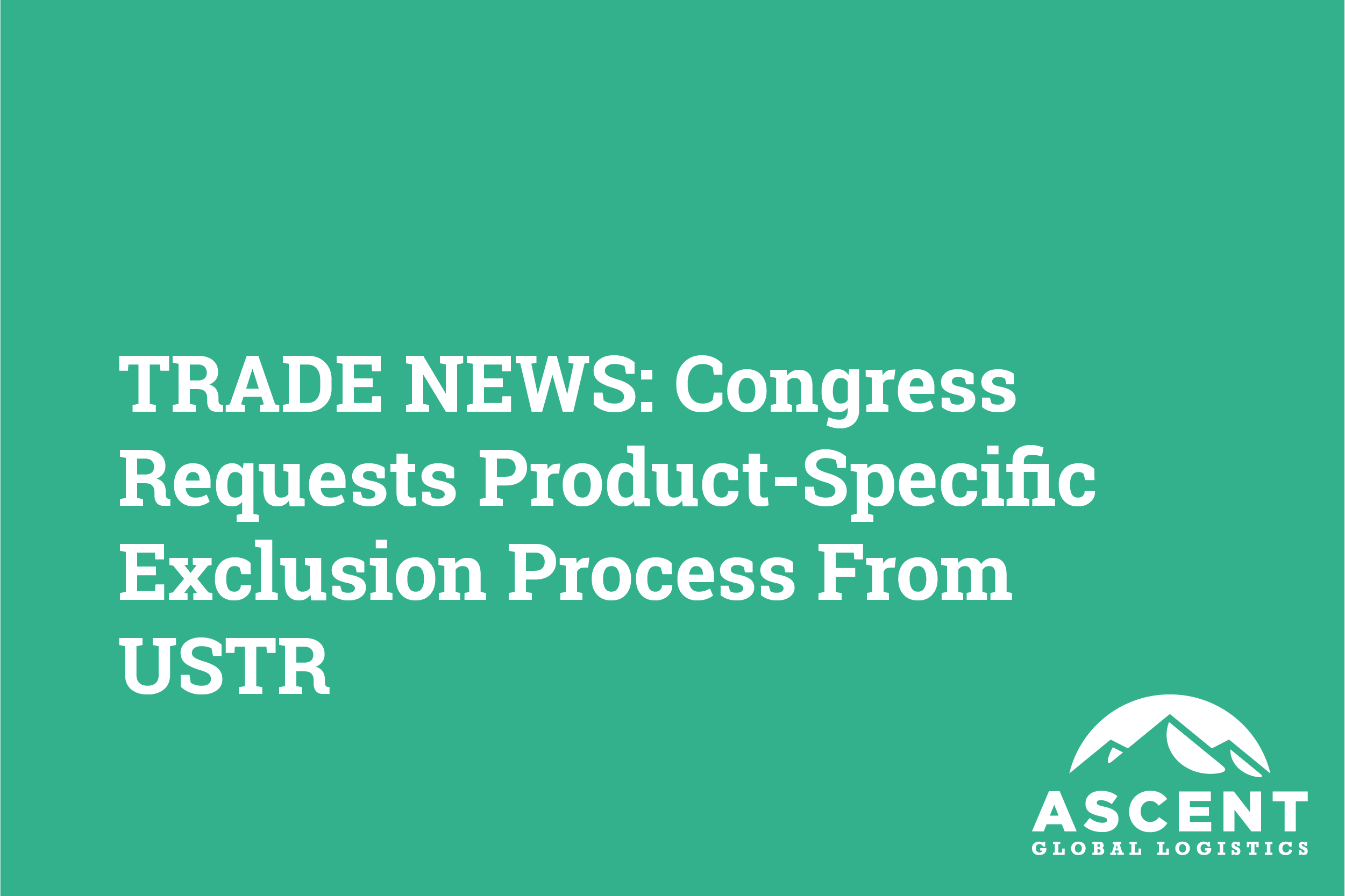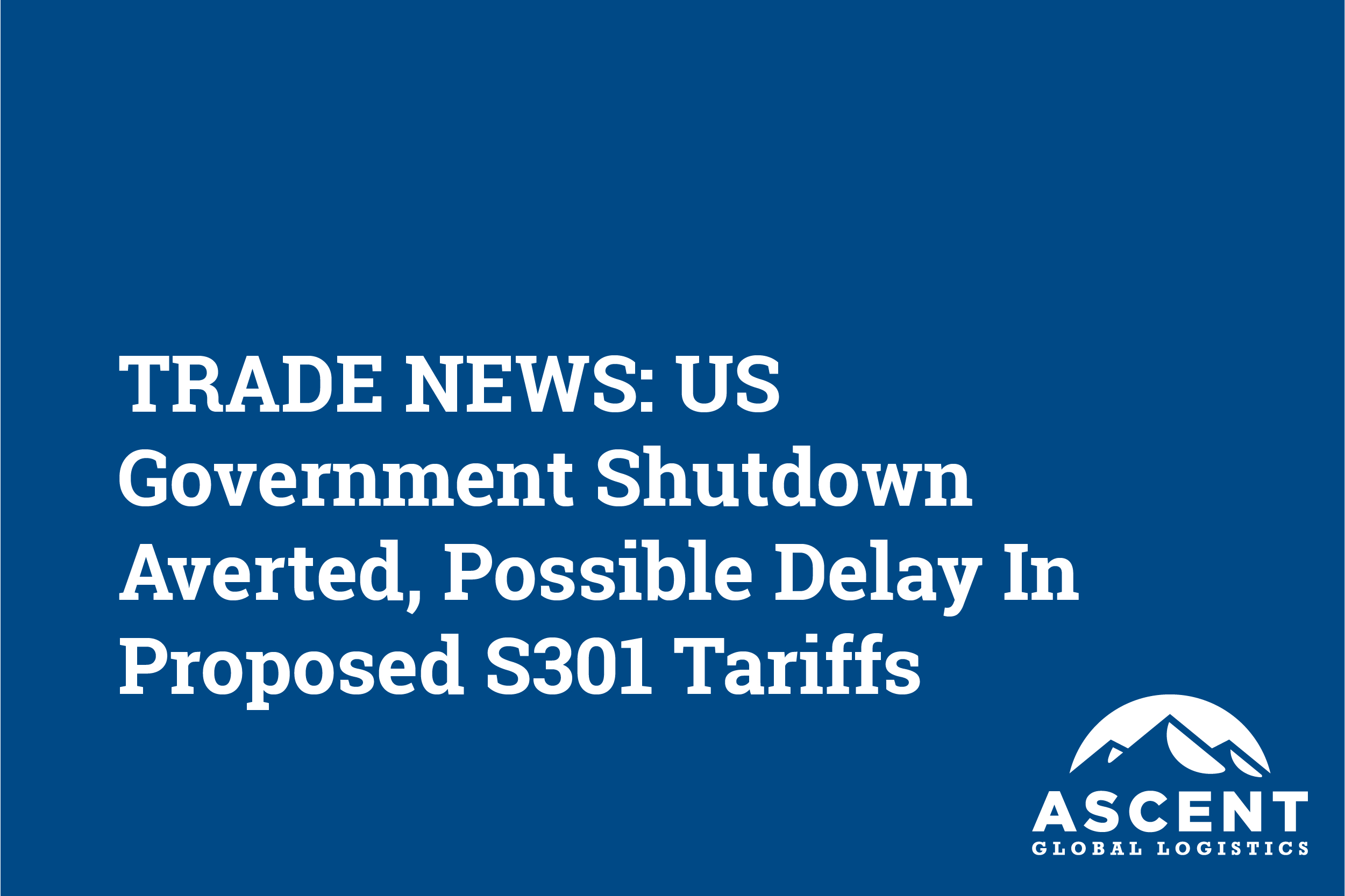PierPASS Rate Increase
PierPASS was established as a not-for-profit company in Los Angeles/Long Beach in 2005 with a goal of addressing multi-terminal congestion issues. The terminals began to have peak hours and non-peak hours, which helped the flow of trucks coming into the ports to pick up containers. The Traffic Mitigation Fee (TMF) was assessed on each truck that came in during “peak” hours, encouraging more movement at off-peak hours, evening hours. The strategy was to improve energy efficiency, air quality, safety and security as well as congestion in the ports.
Read More
Topics:
Tariffs,
Trade,
International
Q2 2019 brought many updates to tariffs, regulations and more in the international trade industry. We've compiled a recap of all of the must-know trade updates for importers and exporters as we embark on Q3.
Read More
Topics:
Tariffs,
Trade,
International
International Trade News: S301 List 3 Tariff Exclusion Requests
According to a notice issued by the Office of the United States Trade Representative last week, requests for S301 List 3 exclusions may be submitted between June 30, 2019 and September 30, 2019 through the USTR website, which will be available on June 30. Once a requester is registered, they may complete one or multiple exclusion requests. The notice provides a replica of the form and what information must be provided.
Read More
Topics:
Tariffs,
Trade,
International
India Removed from Generalized System of Preference (GSP)
Under Executive Order 11888 of November 24, 1975, President Gerald Ford designated India as a beneficiary developing country for the purposes of Generalized System of Preference (GSP), an action afforded by The Trade Act of 1974. The goal of this Trade Act was to promote economic growth in developing countries while also providing all presidents with the ability to withdraw, suspend or limit the duty-free treatment afforded, based on various factors including the country's assurance that it will provide "equitable and reasonable access to the markets and basic commodity resources of such country" as well as refraining from unreasonable export practices.
Read More
Topics:
Tariffs,
Trade,
International
S232 - Steel & Aluminum Tariffs (Worldwide Application)
S232 tariffs were ruled “constitutional” in March of this year by the Court of
International Trade. With this ruling, the S232 tariffs are expected to continue into the foreseeable future. Since the tariffs went into effect in March of 2018, there have been over 50,000 steel and aluminum exclusion requests made and the Bureau of Industry and Security has approved just over 25,000 through mid-March of this year. Click here to read more about S232 Tariffs on Aluminum and Steel imports.
Read More
Topics:
Tariffs,
Trade,
International
The office of the United States Trade Representative (USTR) recently issued a notice, officially "postponing" the tariff rate increase "until further notice." S301 List 3 tariffs will remain at 10 percent instead of increasing to 25 percent. The delayed increase is due to progress in US and China trade negotiations.
Read More
Topics:
Tariffs,
International
Over the weekend, the US Administration announced that it would postpone increasing S301 List 3 tariffs. The United States and Chinese President Xi Jinping plan to meet to reach a final trade agreement.
Read More
Topics:
Tariffs,
International
Over the last several months, there have been a number of key updates to S232 Tariffs and S301 Tariffs Lists 1-3. In addition, the United States and China continue to hold trade talks. Last week in Beijing, key officials from the United States and China outlined a “10-item list of ways China can reduce its trade surplus with the US."
Read More
Topics:
Tariffs,
International
Congress has requested that the office of the United States Trade Representative (USTR) create the formal exclusion process for products outlined under the S301 List 3 tariffs. These tariffs for $200 billion worth of imports from China are scheduled to increase from 10 percent to 25 percent on March 2, 2019.
Read More
Topics:
Tariffs,
International
Impending US Government Shutdown Averted
On the afternoon of February 15, 2019, US President Donald Trump signed an emergency spending bill to avert a partial government shutdown. The legislation provides $333 Billion worth of funding to several key Cabinet agencies through September 2019.
Read More
Topics:
Tariffs,
International
